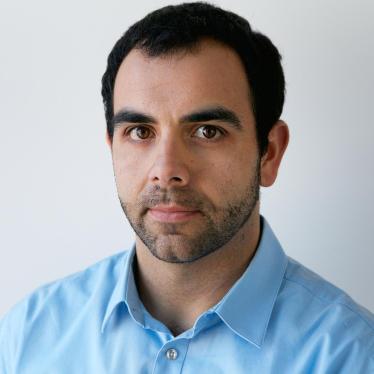Israel and Palestine are descending into depths of darkness not seen in years. Early Saturday, Hamas and other armed groups entered Israel, and committed heinous atrocities, killing more than 1,300 Israelis. The attackers shot civilians en mass, including in an attack on partygoers that reportedly killed 260 people, two of them Brazilians. The attackers killed people in their homes, took scores of hostages, including women and older people, and indiscriminately fired thousands of rockets toward Israeli towns and villages.
Israel then launched a massive bombing campaign, killing more than 1,400 Palestinians as of October 12, including more than 400 children, the Gaza Health Ministry reported. Israel has attacked schools, refugee camps, and healthcare facilities. Israeli authorities have also cut electricity, water, fuel and food into Gaza, exacerbating a dire humanitarian situation for more than 2.2 million Palestinians. No aid is entering Gaza, and Israel has reportedly threatened to block any entering from Egypt.
President Luiz Inácio Lula da Silva has urged Palestinian armed groups to release kidnapped Israeli children —and Israel to stop bombing. He has promised that Brazil, as UN Security Council president this month, will do everything possible to end the violence. Foreign Minister Mauro Viera flew to New York, Friday, to chair an urgent Security Council meeting on the crisis.
President Lula should push for a Security Council resolution urging both parties to adhere to international humanitarian law—the laws of war, which seek to save lives and reduce suffering and lobby the other 14 Council members to support this resolution. If the United States chooses to veto it, as it often does with any Security Council text that criticizes Israel, it will have to explain its reasons at an open General Assembly session.
The laws of war apply to all parties to a conflict, irrespective of what other parties have done or of imbalances in power. No one has a right deliberately to kill or target civilians and civilian infrastructure or launch indiscriminate or disproportionate attacks. Deliberately killing civilians and taking hostages are war crimes, as is collective punishment.
Brazil should highlight the decades-long impunity in fueling continued bloodshed and the importance of accountability, including at the International Criminal Court. Brazil should work to ensure the court’s prosecutor can move expeditiously in his ongoing Palestine investigation.
Brazil could also push the Security Council to demand getting vital humanitarian assistance to those in need and call on Israel to allow in food, water, fuel, and electricity and lift the closure of Gaza. Brazil should ask donor countries not to halt aid to Palestinians. Opposing Hamas’ assault does not require severing vital lifelines for Palestinian civilians.
President Lula has shown concern about the failure of the international community to protect Palestinians’ rights. He now has a pulpit to address the recent violence and the larger context, including the systematic structural repression of Palestinians, which amounts to the crimes against humanity of apartheid and persecution.
The world needs to build pressure toward ending attacks on civilians and halting systematic human rights abuses in Israel and Palestine. With the United States and other Global North countries failing to consistently call for respect for international law and justice, there is a gap in leadership. Brazil should become a leading voice in calling for protection of human rights, respect for international law, and accountability for war crimes.











